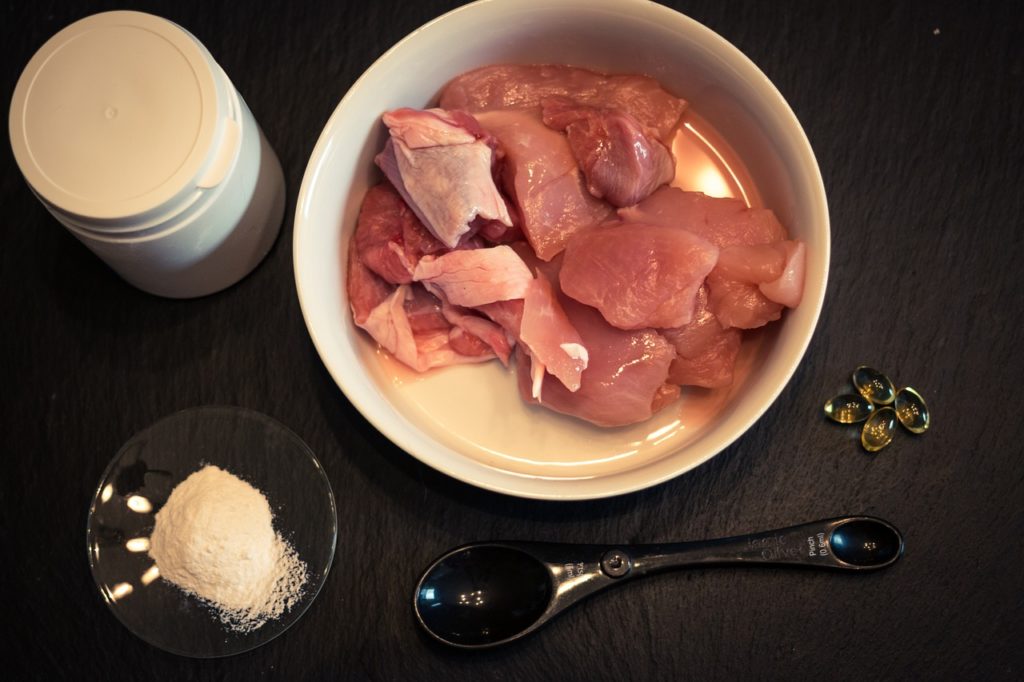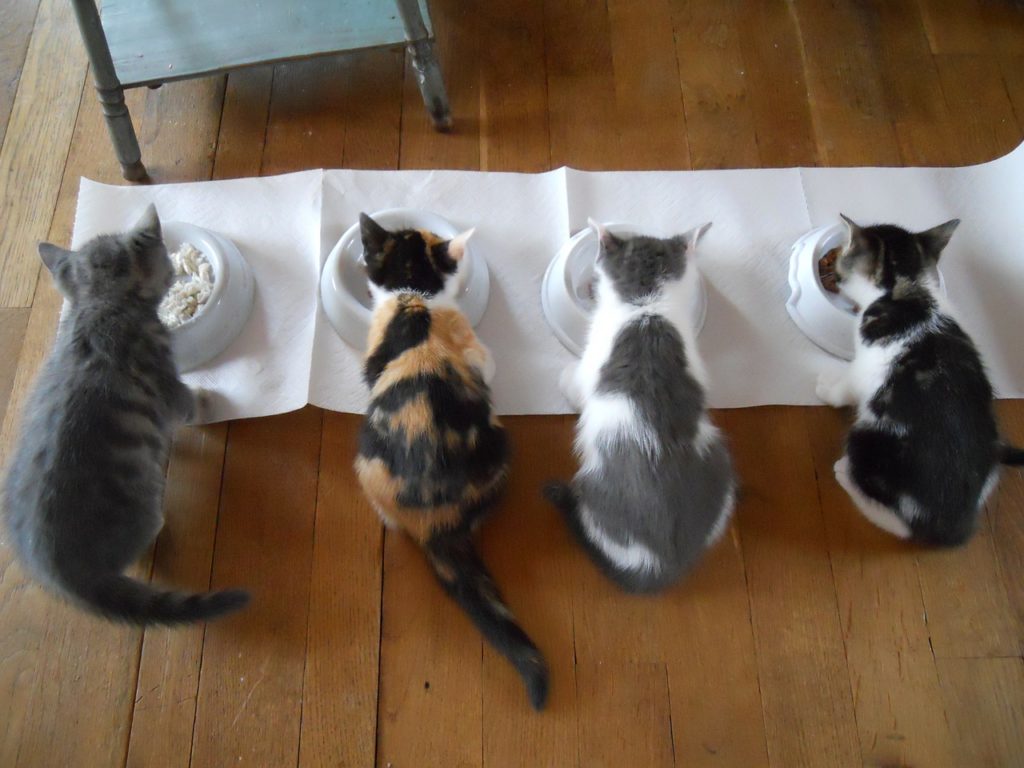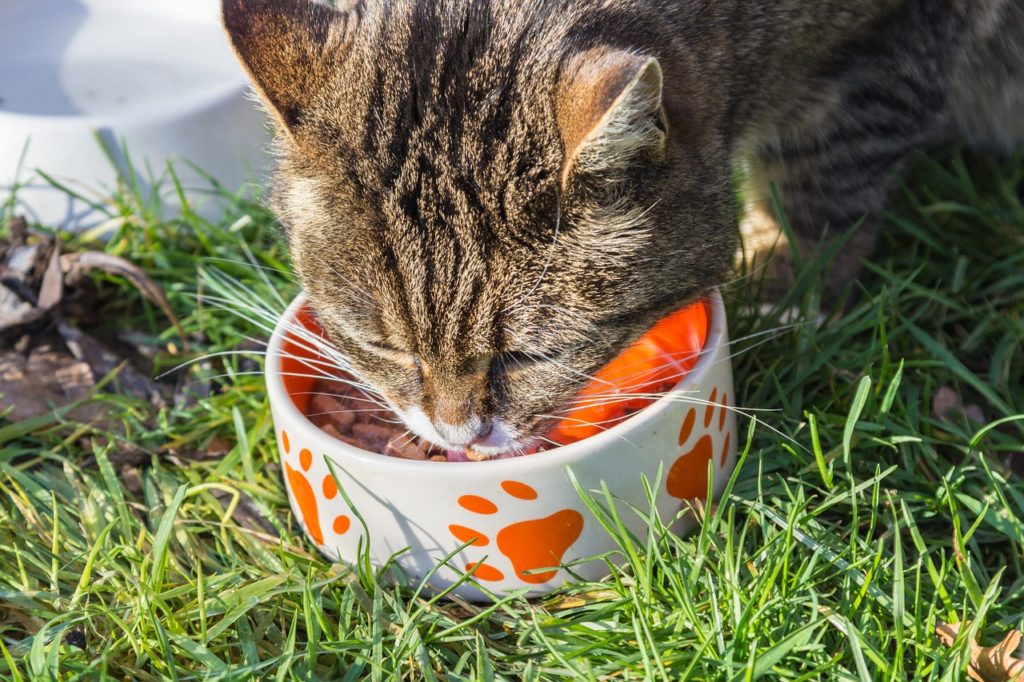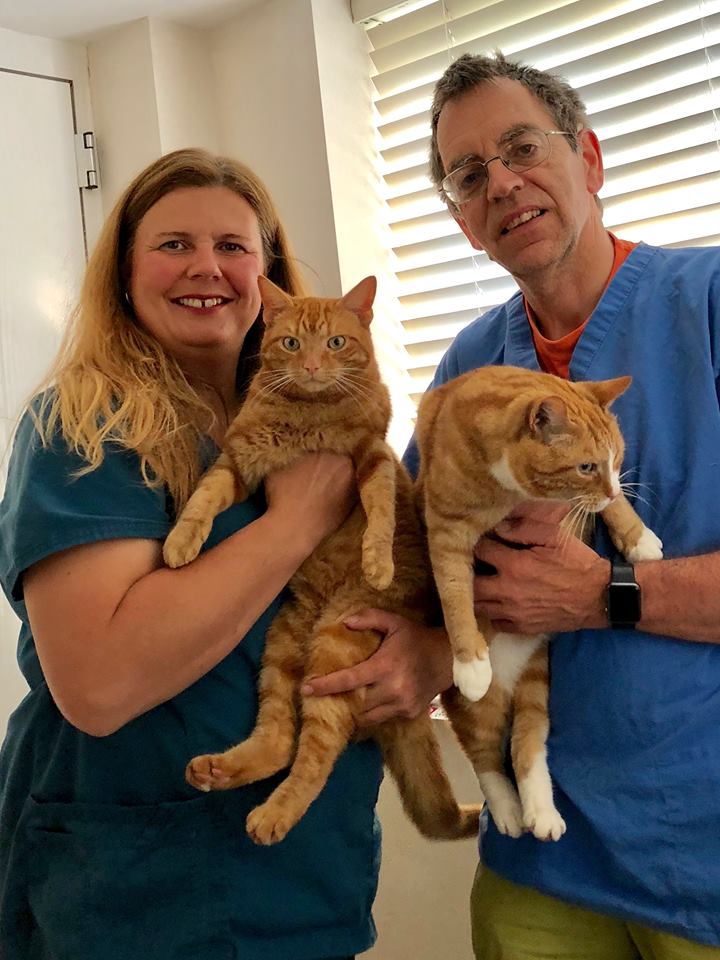As vets we’re often asked about the diets we should supply, particularly the growing trend in going back to raw feeding against processed food.
The alleged benefits of raw feeding are widely talked about online so we’re not going to regurgitate it all! Instead here is our humble, but highly educated opinion……
What is the best diet that we can feed our feline family?

Home cooked diets can be very good depending on the individual cat and their requirements – however, it is not something simple that can be done haphazardly or to an online recipe. You need input from a veterinary nutritionist to formulate the diet to ensure it has everything required.
It’s not as easy as just cooking mince or other meats at home – those will not be balanced diets and in all likelihood deficient taurine for example, which causes heart disease (and eventually heart failure) in cats.
Each cat should be assessed individually and so diet suggestions will vary.
That said, in our opinion, an ideal diet for a cat is a variety of high quality, high protein, complete balanced wet cat food (75-80%) and some (20-25%) high quality high protein balanced dry food. We do believe cats should get some of both and a variety of textures etc so that it’s easy to change their diet as required if they need to. Brands that are high quality guarantee their formulations – ie they don’t change the protein source because one batch is cheaper without telling the customer (quite a few companies do this).
High quality brands also do feeding trials, and high quality research to support the fact that their diets are feline appropriate.
The fact is that cats live a lot longer today than they used to, and a big part of that is that we have access to good quality complete diets for cats that can’t hunt to sustain themselves because they live in urban environments or indoors.

As for dry food? Cats were clearly not designed to eat dry cat food…however it does have its place. Cats should ideally eat mostly wet food – but not all cats are happy to eat wet food. Food preference is fixed as young kittens around weaning time so can be hard to change when they are older.
Vets do get training in nutrition, and there are veterinary nutritionists out there who solely deal with that field, including helping to formulate complete diets (home cooked etc). We don’t recommend what we sell to sell it: we sell what we recommend because we recommend it and believe in it. We feed our own cats a mixture of commercial wet and dry.
And we wouldn’t be at all averse to giving our cats the odd raw chicken wing, if they would have it, and if it was human grade meat and handled appropriately.
However our main concern is always in ensuring our cats eat a completely balanced diet. We still see cats develop (fatal) disease from inappropriate diets.

We would want to see that whatever company is providing the raw diet has done research – especially feeding trials – and has had input from a trained and boarded veterinary nutritionist.
At our clinic our clients know we have devoted our lives to the health and wellbeing of cats. It’s a vocation and not financial – god knows we could be making double the salary at mixed dog practices…and we pride ourselves on being at the forefront of knowing what is best for cats.

There simply isn’t any evidence (peer reviewed research) that commercial raw diets are better for cats. There is just a lot of anecdote out there, which is worth exactly what you’d expect it is.
